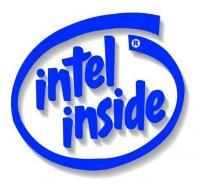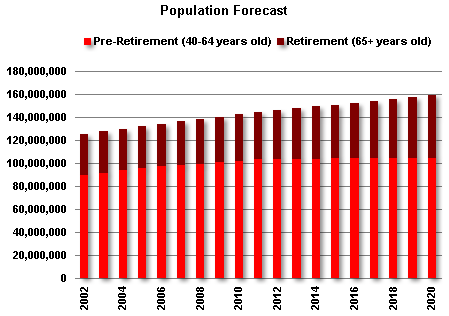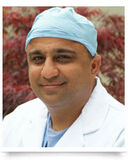Is Intel… I mean St. Jude Inside You?
By Adam Pick on November 16, 2007
As some of you may know, I am a high technology analyst for a leading firm here in Los Angeles. I am also a former, double heart valve replacement patient with a personal mission to help future patients and caregivers.
That said, there is some (albeit small but significant) overlap between these two roles in my life.
For example, are you familiar with the “Intel Inside” marketing strategy of the early 1990’s? At the time, Intel was a vague semiconductor brand that powered the world’s business and personal computers with its central processing unit (CPU). Back then, buyers were typically aware of brands like Hewlett Packard, Compaq and IBM, but they didn’t really pay attention to the CPU that powered their desktop computer.

Then, the Intel executives got smart. Intel realized it needed to start branding itself (just as much as the box makers) to stimulate their brand and demand in the competitive marketplace. That’s when the whole Intel Inside Marketing Campaign campaign started. If you recall, almost every last second of every commercial for Dell or Hewlett Packard (that features an Intel processor) now sings out the famous Intel chime. Needless to say the strategy was a windfall for the company. Buyers started asking for Intel-specific computers. How do I know? I was one of them. Do you remember the buzz around the Pentium Processor? Genius!!!
Anyways, to my point about heart valve manufacturers…
Recently, I asked 10 heart valve replacement surgery patients which valve replacement manufacturing brand was inside them. Guess what? Three of them did not know! 30% is an awfully big number don’t you think?
Well… My gut tells me this may be about to change. I believe that the leading heart valve manufacturers may start turning on the marketing juice.
“Why?” you are wondering.
Two words… BABY BOOMERS!!!
It’s no secret the baby boomers are aging. In the US alone, there are 76 million people aged 43 to 62, according to Celent. That’s 28% of the population.

Take a guess what may be in huuuuuuuuge demand in the future? Yes! Wheelchairs, canes, reading glasses, etc.
But, I was hoping you would say… HEART VALVE REPAIR AND HEART VALVE REPLACEMENTS!!!
It is my hunch that the heart valve manufacturers will start rolling out more and more marketing as the baby boomers age. Pretty soon, I believe the influence of mass marketing will empower the patient to tell his/her surgeon, “I want an Edwards Valve!” or “Give me the St. Jude Valve!” or “Medtronic Bovine Valve For Me! Thank You Very Much!!!”
To some extent, this is happening today. But, I believe this is going to happen much, much, much more in the future.
Keep on tickin!
Adam
|
brenda says on November 20th, 2007 at 8:32 pm |
|
adam, in2001 i my mitral valve re placed with a st.judes,sometimes i have sharp pains on it ,is this normal? |
 |
|
Adam Pick says on November 20th, 2007 at 9:46 pm |
|
Hey Brenda, That’s a good question. While I did not have a St. Jude’s valve replacement, it doesn’t seem to common to have ‘pain’ on the valve. Have you talked to your cardiologist or surgeon about this? Adam |
 |
|
Lisa says on November 27th, 2007 at 12:45 am |
|
As you should know, heart valve surgery isn’t related to age, so aging baby boomers shouldn’t have an effect on the number of recipients. I think that what influences advertising is educated consumers. With the internet, people are becoming very educated and asking doctors questions about things that they never knew about just a few years ago. When I had my surgery almost 10 years ago, the internet was still in its infancy and, although I knew that there were different types of valves, when my doctor told me the St. Jude’s was best in his opinion, I trusted him. I would probably still do the same thing, but I would now have more information to back up his opinion. |
 |
|
Adam Pick says on November 27th, 2007 at 8:43 am |
|
Hey Lisa, On a personal basis, I completely agree with you – heart valve surgery occurs regardless of age. I had mine when I was 33. However, I am somewhat of an anomaly. However, when you consider the average age of people receiving heart valve surgery, they typically fall within the 50-70 age category. This was recently confirmed by my survey and my discussion with an aortic valve specialist at The Cleveland Clinic. That said, as the mass of baby boomers head into retirement, there will be more heart valve surgeries. As the market grows, the heart valve manufacturers will take the appropriate steps to further the education you reference above. As you note, it’s happening right now via the Internet and patient-empowered research. My opinion is that the valve manufacturers will become more aggressive with push methods of advertising as they attempt to penetrate the market. It’s interesting to consider all the mergers and acquisitions in this industry. Again, in my humble opinion, that is a sign of things to come. This is similar to many, many, many industries. Just a thought, Adam |
 |













